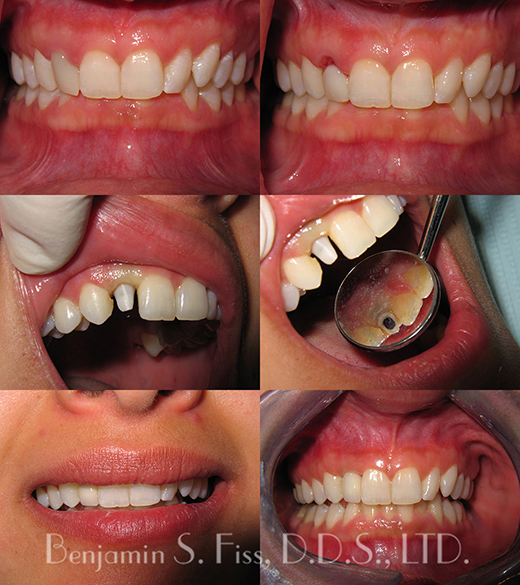What Does Dental Sense Do?
Table of ContentsRumored Buzz on Dental SenseSome Of Dental SenseGetting My Dental Sense To WorkDental Sense for Beginners
are medical tools operatively dental implanted into the jaw to bring back an individual's ability to eat or their appearance. They supply assistance for synthetic (phony) teeth, such as crowns, bridges, or dentures. When a tooth is shed as a result of injury or illness, an individual can experience difficulties such as quick bone loss, faulty speech, or changes to eating patterns that lead to pain.Dental implant systems consist of an oral implant body and dental implant abutment and may likewise include an abutment fixation screw. Professional teeth whitening. The oral implant body is surgically placed in the jawbone in location of the tooth's origin. The dental implant abutment is normally affixed to the dental implant body by the joint fixation screw and prolongs via periodontals right into the mouth to support the connected fabricated teeth
(https://www.callupcontact.com/b/businessprofile/Dental_Sense/9469240)Framework of The Oral Implant System selecting dental implants, talk with your oral provider about the possible benefits and dangers, and whether you are a prospect for the treatment. Things to take into consideration: Your total health is an essential variable in establishing whether you are a good prospect for dental implants, for how long it will require to recover, and for how long the implant might remain in location.
Smoking cigarettes may affect the recovery process and decrease the long-term success of the implant. The healing process for the dental implant body may take numerous months or longer, during which time you usually have a short-lived joint in location of the tooth. the dental implant procedure: Very carefully comply with the oral health guidelines given to you by your oral copyright.
The Best Strategy To Use For Dental Sense
Implant failing can cause the requirement for an additional surgery to take care of or change the dental implant system. Restores the ability to chew Recovers cosmetic appearance Helps maintain the jawbone from diminishing because of bone loss Protects the wellness of the surrounding bone and gum tissues Aids maintain adjacent (close-by) teeth stable Enhances lifestyle Damage to surrounding natural teeth during dental implant positioning Injury to the surrounding tissues during surgery, such as sinus opening Injury throughout surgical procedure (for instance, crack of bordering jawbone) Poor feature, such as feeling like the teeth do not attack with each other usually An experience that the tooth is loosened or twisting in place arising from an abutment screw loosening up Implant body failing (looseness of the dental implant body) because of systemic infection, which might be most likely in people with uncontrolled diabetics issues due to local infection in bone and gums supporting the dental implant body as a result of delayed healing, which might be more probable in patients that smoke Difficulty cleaning up the gums around the implant, leading to poor dental health Neglected periodontal illness Post-surgical pins and needles as a result of nerve impingement or damage Always notify healthcare providers and imaging technicians that you have dental implants prior to any kind of magnetic vibration imaging (MRI) or x-ray procedures.
FDA is not knowledgeable about any damaging events reported for MRI or x-ray procedures with dental implants. Dental implants systems are normally made from products that adhere to international consensus criteria of the International Organization for Standardization (ISO) or ASTM International. These criteria have information of what makes a secure material.

A dental implant is a structure that changes a missing tooth. With screw-like tools, the doctor inserts a dental implant right into the jawbone, and it acts as a support for an artificial tooth, called a crown.
An Unbiased View of Dental Sense
Some people are not qualified for oral implant surgery. It is for dental doctors to operate on individuals with: acute illnessuncontrollable metabolic diseasebone or soft tissue condition or infectionIf these problems are resolved, a person can have the surgery. In, oral specialists avoid running on individuals with: If people with any of the above go through dental implant surgical procedure, there is a higher risk of the dental implant falling short.

Dental dental implant surgical treatment is an individualized procedure. It's not the very same for every person. The following gives a general summary of what you can expect your dental practitioner, oral specialist, periodontist or prosthodontist to do: Position the dental implant surgically. Offer you time to heal. Affix the article and final crown, bridge or denture.
Next, your doctor will very carefully position the dental implant into your jaw. If your implant is near the front of your mouth, your dentist will make a momentary tooth for you to wear till you heal.
The 2-Minute Rule for Dental Sense
Your service provider can tell you what to anticipate in your situation. During the recovery stage, your jawbone ought to fuse to the dental implant. This process, called osseointegration, is essential for security and long-term success. This procedure can take anywhere from three to nine months. In some instances, it might take much longer.
Once your dental implant heals, your dental practitioner can affix the joint (small port post) and your last repair (crown, bridge or denture). This usually takes about one hour to finish and may need a 2nd minor surgery. You should not feel any pain throughout your dental implant procedure because your copyright will use medication to numb your gum tissues.